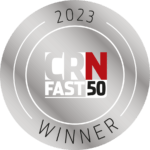The metamorphosis of the modern workplace is a testament to the relentless march of technology and the ever-changing dynamics of the business world. As we find ourselves in an era marked by digital interconnectedness, the tools, platforms, and solutions underpinning our professional environments are evolving at a pace that was once unimaginable. Let’s delve deeper into the latest trends and technologies that are moulding the modern workplace and their profound implications for businesses of all sizes.
Remote Work and Digital Collaboration
The concept of a fixed office location is becoming increasingly fluid. With platforms like Microsoft Teams, Zoom, and Slack, teams scattered across continents can collaborate as if they're sitting across the table from each other. This new paradigm promotes a work-life balance, taps into a global talent reservoir, and challenges businesses to maintain corporate culture in a virtual space.
Cloud Computing and SaaS
The cloud has democratised access to cutting-edge business tools. SaaS platforms, such as Salesforce and Google Workspace, eliminate the need for substantial initial investments in infrastructure. They offer businesses the flexibility to scale operations with demand, ensuring agility and responsiveness in a volatile market landscape.
Artificial Intelligence and Automation
The integration of AI into business processes is revolutionising decision-making. Advanced algorithms can now analyse vast datasets, offering insights and predictions with unparalleled accuracy. Automation, on the other hand, is streamlining operations, from customer service chatbots to automated inventory management, ensuring efficiency and consistency.
Cybersecurity and Data Protection
The digital transformation comes with its set of vulnerabilities. Modern workplace solutions are increasingly focusing on fortifying digital defences. Advanced threat detection mechanisms, regular security audits, and data encryption are becoming non-negotiable features. Moreover, with stringent data protection regulations globally, businesses are investing more in ensuring compliance and safeguarding stakeholder trust.
Augmented and Virtual Reality (AR & VR)
Beyond gaming, AR and VR are finding practical applications in the professional realm. Virtual team meetings, immersive training modules, and augmented data visualisation are just the tip of the iceberg. These technologies are bridging the gap between digital data and human understanding, fostering richer, more interactive professional experiences.
Internet of Things (IoT)
The proliferation of connected devices offers businesses a goldmine of data. From tracking inventory in real-time to monitoring energy consumption in offices, IoT is enabling smarter, data-driven decision-making. However, this interconnectedness also demands robust security protocols to prevent potential breaches.
Sustainable and Green Technologies
The global emphasis on sustainability is reshaping business operations. Modern workplaces are integrating green technologies, from solar panels to biodegradable office supplies. Such initiatives not only reduce operational costs but also resonate with a growing base of eco-conscious customers, partners, and employees.
Employee Wellbeing and Ergonomics
Modern businesses recognise that their most valuable asset is their workforce. There's a growing emphasis on creating ergonomic workspaces, be it in the office or at home. Mental health platforms, wellness programmes, and flexible working hours are becoming standard as businesses strive to ensure the holistic wellbeing of their employees.
Integration of Big Data and Analytics
Data is the new oil. Modern businesses are leveraging big data and analytics to gain insights into customer behaviour, market trends, and operational efficiencies. Tools like Tableau and Power BI are enabling even those without a technical background to visualise and interpret complex data, driving informed business strategies.
Adapting to new tools and technologies is becoming increasingly vital for businesses. As we navigate the future, embracing these changes will determine which organisations thrive and which lag. In this fast-paced era, staying updated and flexible is not just an advantage; it's a necessity. By taking proactive steps and being open to innovation, businesses can ensure they remain at the forefront of their industries.







